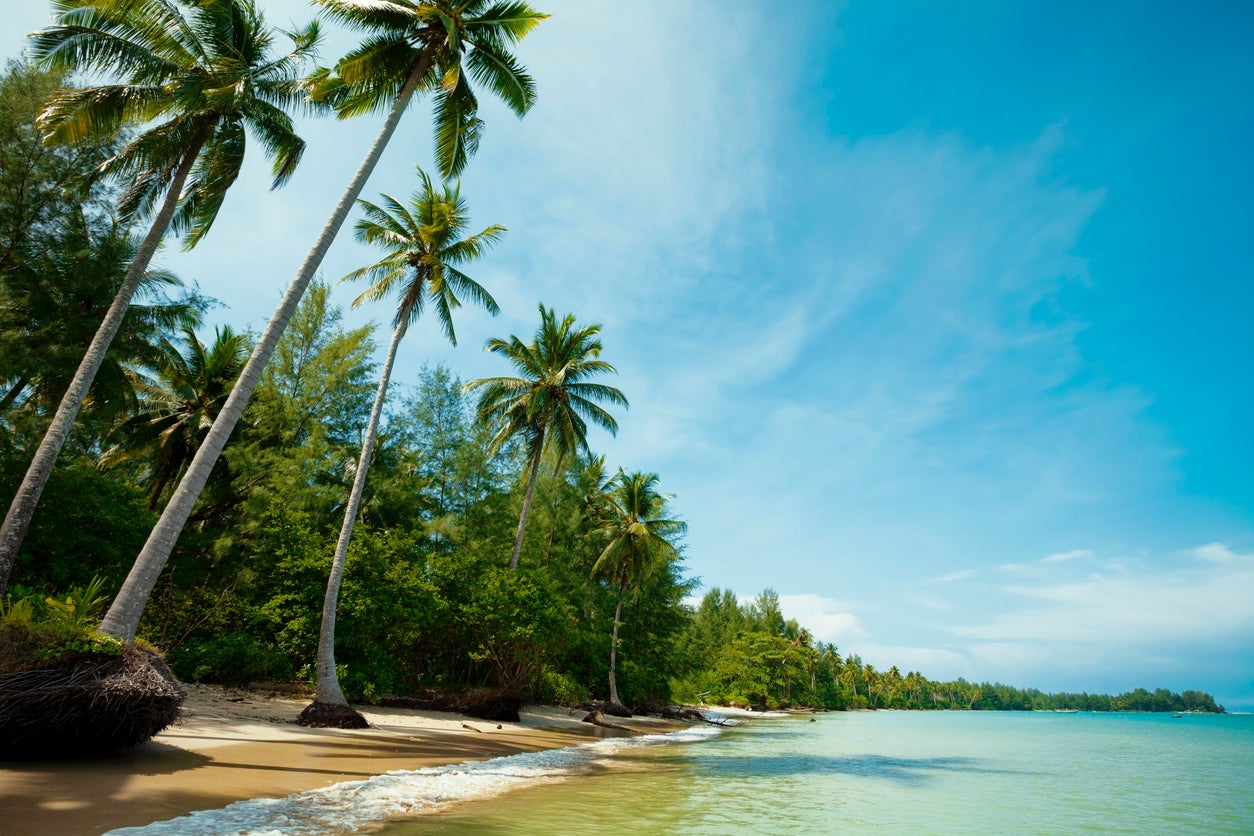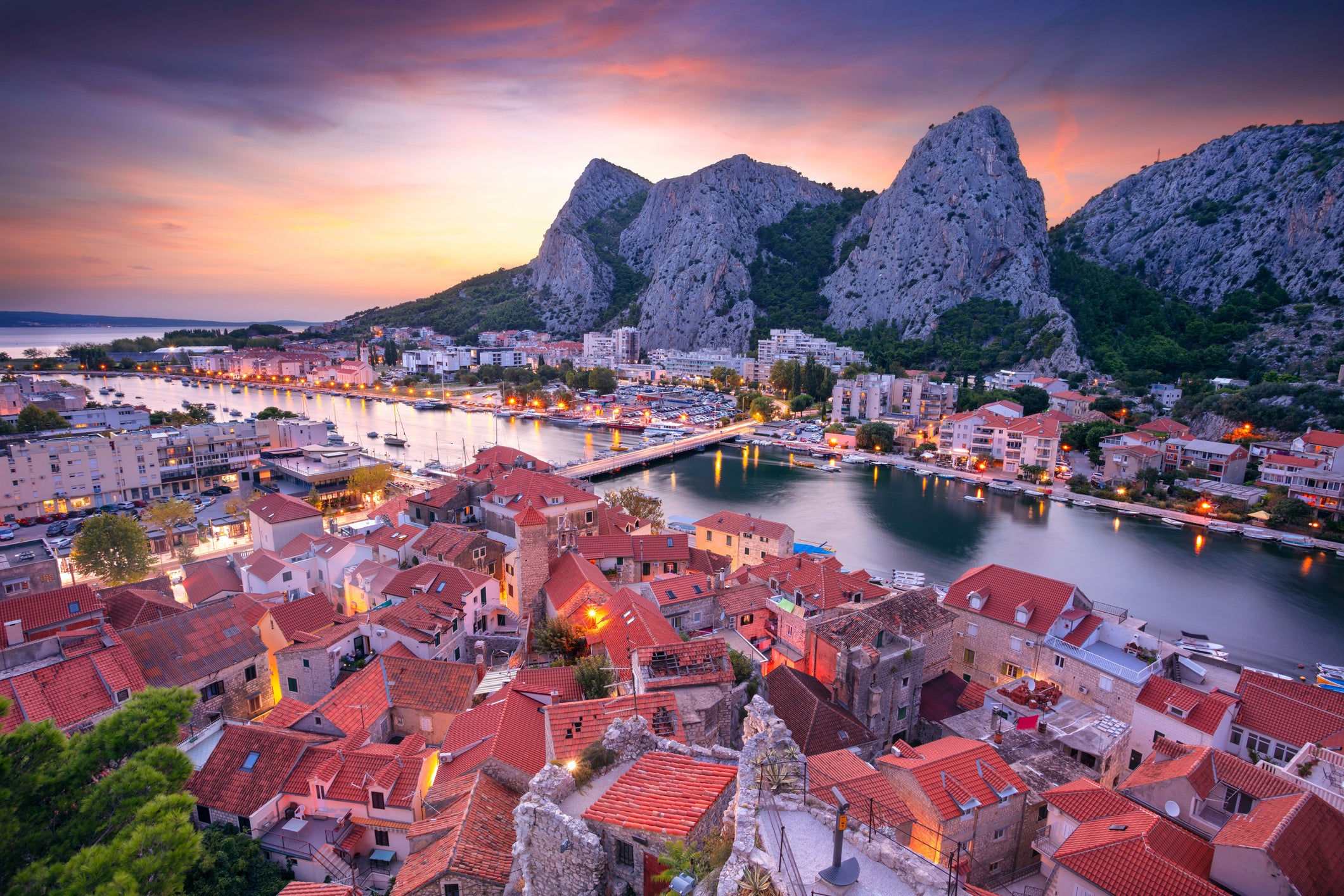Should we use cash or card while we’re in Thailand?
Simon Calder answers your questions travel finance and Schengen limitations


Q I am travelling to Thailand (industrial action permitting) on 31 December with my wife to celebrate our silver anniversary. What advice would you have regarding spending – cash or card?
Sion T
A Congratulations on 25 years of marriage, and for fleeing winter on the last day of the old year in order start the new one somewhere warm and wonderful. I imagine you picked up a relatively good fare in return for celebrating the arrival of 2023 somewhere over southeast Europe at 35,000 feet. In terms of the strike of members of UK Border Force, I would be very surprised if it impacted your flight in any way. I would be more concerned about baggage going astray, and I recommend everyone travels only with cabin luggage if they can. (Let’s face it, in Thailand you rarely need more than a T-shirt and shorts.)
Anyway, to your question. I have not been to Thailand since it emerged from a tangle of travel restrictions, and so I cannot judge exactly how far merchants have moved to card (or smartphone) payments. More expensive hotels and restaurants will gladly take cards, but the fees on typical British cards add a punitive 3 per cent to the cost of purchase. Some cards, such as Halifax Clarity, do not add foreign transaction fees. If you do not have one, you might just have time to order one today and hope it gets through the Christmas mail in time so that you can take it with you.
The more budget end of Thai tourism is (I believe) still very much a cash economy. The keenest rates in local travel agencies and bureaux de change are for US dollars, but unless you have some hanging around I suggest you just take clean sterling notes and shop around for the maximum Thai baht. Change little and often, so you don’t get left with a significant quantity at the end of your trip. And happy new year.

Q I see Croatia is becoming part of Schengen in 2023 with Bulgaria and Romania likely to follow suit. How badly will this limit options for longer travels to Europe?
Robin G
A Say what you like about Brexit but, in terms of reduced access to the Schengen area, we have got exactly what we asked for (or at least what the UK government successfully negotiated on our behalf).
Schengen is the steadily expanding zone that comprises most European Union plus Switzerland, Iceland, Norway and Liechtenstein. The UK arranged for British travellers to become “third country nationals” and therefore subject to the “90/180-day rule”. This means that If you travel to one of the Schengen area countries on New Year’s Day, you can stay in the zone until the last day of March. If you use up your full 90 days in this way, then you will not need to leave the Schengen area until late June – 180 days after the start of the year.
Currently, you can go to one of the EU’s few non-Schengen countries – Bulgaria, Croatia, Cyprus, Ireland and Romania – without adding to your 90-day allowance. Ireland has no restrictions on the movements and length of stay of UK citizens, a situation that shows no sign of changing thanks to the longstanding common travel area. The remaining nations, all in southeast Europe, have their own 90/180 rules that are not additive. In other words, with careful timing you could spend half the year in the Schengen area and the other half in some combination of Bulgaria, Croatia, Cyprus and Romania.
Croatia will join Schengen on 1 January 2023, and also plans to introduce the euro to replace the kuna. The move will reduce long-stay options for British travellers. There is no imminent prospect of the other three nations joining Schengen.
Whichever way you voted in the 2016 referendum to leave the European Union, in the travel realm I believe it is difficult to dispute that any of the warnings dubbed Project Fear by Brexiteers were exaggerated. Severe damage has been done to the prospects of UK travellers (except those lucky enough to qualify for an Irish or other EU passport). We certainly got what we asked for; as personal finance guru Paul Lewis calls it, Brexit is the rift that keeps on taking.

Q We booked a skiing holiday to Bulgaria on Tuesday. The slopes are closed. What are our options?
Helen B
A Sorry to hear that your Christmas ski trip may be snow-free; a few years ago I had a similar yuletide experience in Austria, and many families still recall their trips to see Santa in Finnish Lapland in 2018 being cancelled when unseasonably warm temperatures turned everything to slush.
For many skiers like you, the lack of snow is especially disappointing after two or three winters spoilt by the coronavirus pandemic. There’s a good chance that your travel insurance will include compensation for “piste closure” if the slopes are actually out of bounds. But typically it amounts to only £25 a day or (sometimes) transport to a different ski area. Skiing in Bulgaria is relatively low altitude and there are unlikely to be serious alternatives.
Don’t be despondent, however. The main resorts in Bulgaria are Bansko and Borovets, and you can find plenty of interest within easy reach of both of them. Rila Monastery is a 10th-century creation in splendid surroundings. This richly decorated complex, with superb frescoes, is Bulgaria’s holiest shrine.
Each ski resort has good transport links to the capital, Sofia – a city I am very fond of, due to its intriguing combination of Roman roots and Soviet-style architecture plus a warm welcome. Hotel rates (and all other prices in Bulgaria) are so low that you could abandon your ski hotel for a night and stay in Sofia instead.
Plovdiv, Bulgaria’s second city, is slightly further (about 60 miles from each) but well worth the journey to visit the treasures of the European Capital of Culture in 2019.
From Bansko, you could even venture to the Aegean. The Greek frontier is only 30 miles south, and the second city, Thessaloniki, is accessible for a day trip. Better still, plan for an overnight stay.
Having said all that, I hope there is a fresh snowfall in the next couple of days.
Email your question to s@hols.tv or tweet @simoncalder






Join our commenting forum
Join thought-provoking conversations, follow other Independent readers and see their replies
Comments